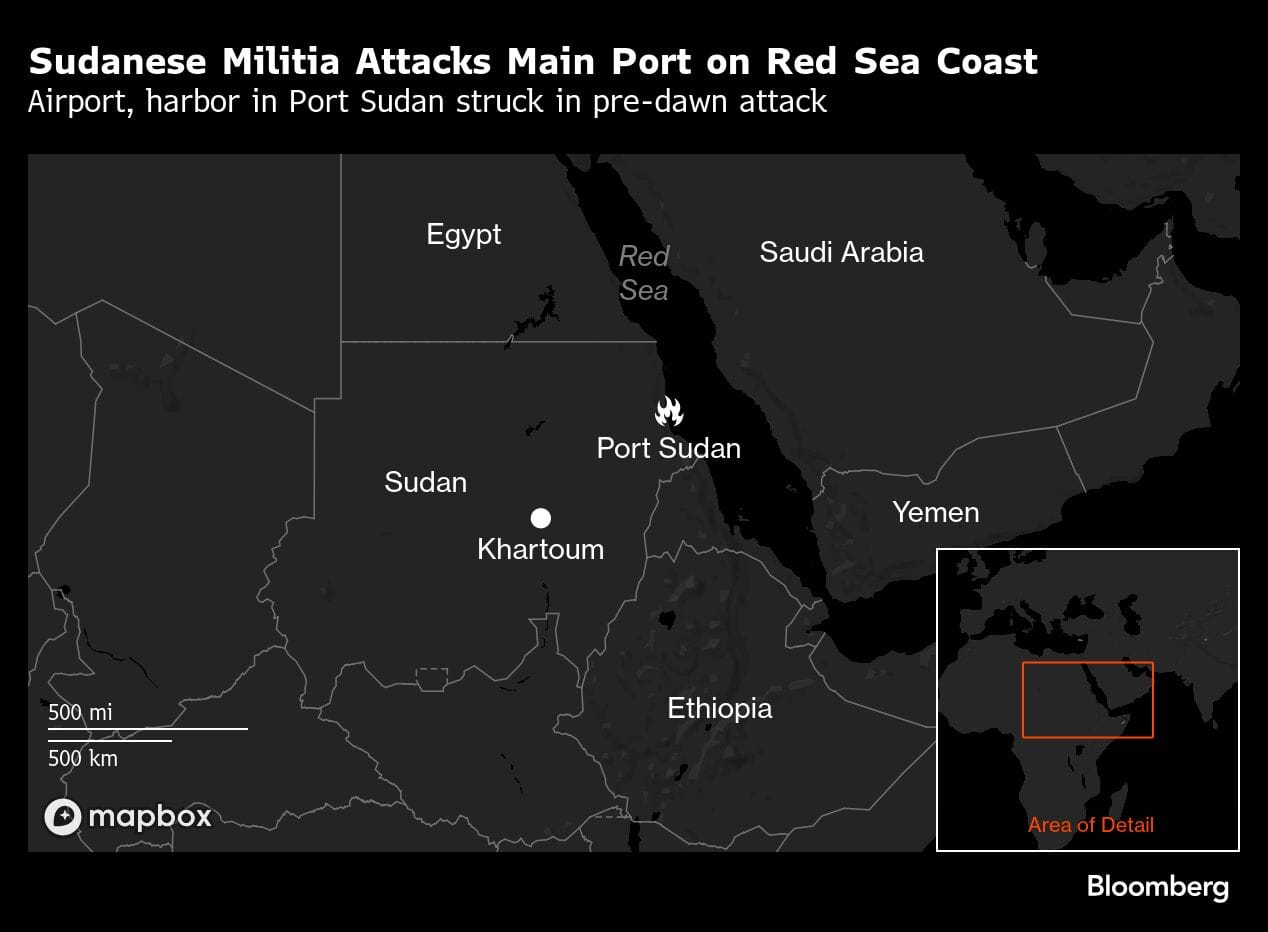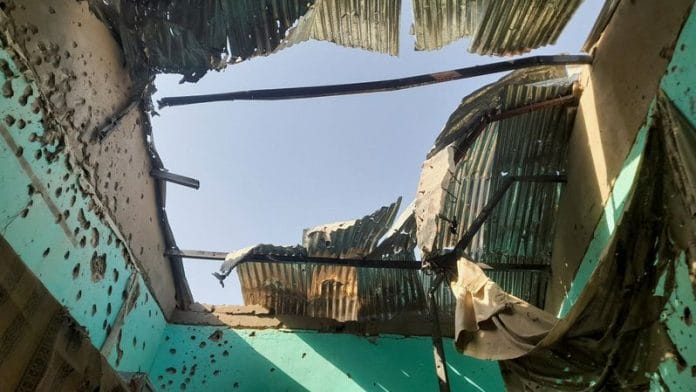A long-simmering dispute between Sudan’s army and a paramilitary group exploded into a full-blown civil war in April 2023. The following year, the US estimated that at least 150,000 people may have been killed. The toll has risen markedly since then, and there’s no sign of a lull in the fighting.
Millions have fled their homes, leading to what the United Nations has described as the world’s biggest displacement crisis. Eclipsed by wars in Ukraine and Gaza, this is a humanitarian disaster that rarely makes headlines.
International donors have committed far more aid to Kyiv than they have to the North African country. The United Arab Emirates and Iran have been accused of arming and funding the opposing sides, undermining efforts by the US and Saudi Arabia to broker a ceasefire.
The conflict took a disturbing new turn in October 2025, when the Rapid Support Forces seized control of El-Fasher in the western Darfur region. The military-backed government and civil-rights organizations accused the paramilitary group of widespread atrocities against civilians in the city, including the killing of about 2,000 people.
How did the unrest escalate?
Sudan’s military, long the country’s pre-eminent power broker, propped up dictator Omar al-Bashir for three decades before ousting him in 2019. In 2021, the army, led by Lieutenant-General Abdel Fattah al-Burhan, toppled an uneasy transitional coalition of civilian and military leaders. That coup sparked new unrest and a deadly crackdown by security forces.
With the generals in near-total control, a long-running rivalry came to the fore between the military and the RSF, which had helped to overthrow Bashir. Violence erupted after the army proposed that the RSF’s members be absorbed into the regular security forces, with the unit’s leader reluctant to relinquish its independence.
Is either side winning the war?
Sudan’s military appeared to have the upper hand by March 2025 after pushing the RSF back in large parts of the country and recapturing control of the capital, Khartoum.
In May, the RSF used drones to attack Port Sudan, a key trade hub that lies on the Red Sea and serves as the army’s de-facto seat of government, and the nearby Flamingo Bay naval base. Fuel storage depots, power lines and other infrastructure were damaged, and aid distribution was disrupted. Up until then, Port Sudan had been spared and was a haven for Sudanese fleeing violence elsewhere.
The RSF continues to hold sway over most of Darfur. Its October capture of El-Fasher, which had been under siege for 15 months, completed its push for full control of all the major cities in the area. The front line in the war was expected to move south to the Kordofan region.
Analysts have raised the prospect of Sudan entering a Libya-type scenario, in which the country ends up split into two separate zones of control.

Who are the Rapid Support Forces?
The RSF has its origins in the government-backed janjaweed militias that terrorized Darfur in the early 2000s. It’s led by one-time camel trader Mohamed Hamdan Dagalo, who initially served as an enforcer for Bashir but later helped to overthrow him. Dagalo then became deputy of the quasi-presidential Sovereign Council, making him Sudan’s de-facto second-in-command.
Though lacking serious air power and tanks, the RSF is a seasoned fighting force. It was estimated to have as many as 70,000 fighters at the onset of the war, although the extent to which the fighting has depleted its ranks is unclear. The US sanctioned the RSF and Dagalo in January 2025 after determining that the group was guilty of genocide.
What’s been the fallout of the war?
In a nation of almost 50 million people, about half are facing extreme hunger, according to the UN. Famine has been documented in 10 locations. Some 12 million have been displaced and Chad, Egypt and South Sudan have all seen a large influx of refugees. Humanitarian groups say their access to the conflict zones is almost non-existent.
Extreme violence has rocked Darfur, evoking memories of the years-long conflict that erupted there in 2003, in which civilians were targeted based on their ethnicity. Widespread attacks and sexual crimes against women and girls have also been documented.
Sudan ranks among the world’s poorest nations, coming in 176th out of the 193 countries surveyed in the UN Development Program’s human development index.
What are the international stakes?
Under Bashir, who seized power in 1989, Sudan became internationally isolated. He spearheaded an Islamist revolution that turned the country into a haven for terrorists such as Osama bin Laden in the 1990s. The International Criminal Court indicted Bashir for alleged war crimes and genocide in Darfur, but the military refused to hand him over to stand trial, and his whereabouts have been unknown since the war started. After his removal, the US rescinded its three-decade listing of Sudan as a sponsor of terrorism and it was gradually re-embraced by Western countries, which saw it as a potential new ally in Africa.
China, which has backed port and rail projects in Sudan, also has an interest, as does Russia, which is trying to bolster its influence on the continent after being ostracized by the US and European Union over its invasion of Ukraine. Russia’s now-defunct mercenary company Wagner Group has been involved in Sudan’s gold-mining sector.
Mediators, regional officials and diplomats say external actors have been trying to influence the outcome of the war and that their involvement has perpetuated and exacerbated the violence.
The Sudanese government severed official ties with the UAE in May over what it described as “ongoing aggression” in the conflict, accusing the Gulf nation of supplying the RSF with weapons. UN experts and US congressmen have echoed the allegation that Abu Dhabi is backing the militia group. UAE officials have repeatedly denied any involvement by their country. Iran, meanwhile, has supplied Sudan’s army with combat drones and other support.
Disclaimer: This report is auto generated from the Bloomberg news service. ThePrint holds no responsibility for its content.






